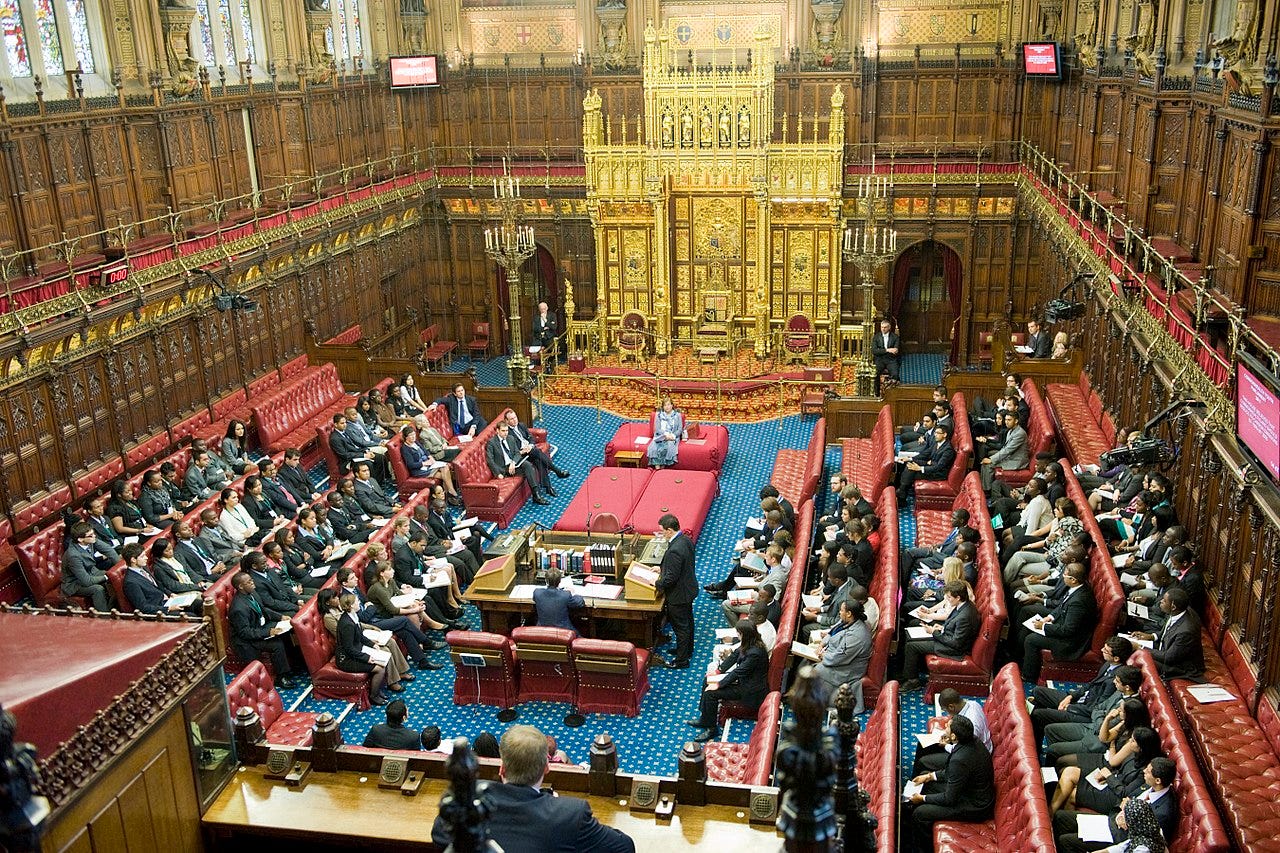Tea with a Baron - German thoughts on the House of Lords
Or: how Britain's and Germany's upper houses reflect history
The traditionalism that underpins institutional life in Britain is both fascinating and alien to me, whether it’s the striking uniforms of the Yeoman Warders in the Tower of London or the elaborate State Opening of Parliament with its history-laden rituals. Watching the King’s coronation felt like time travel, especially when you come from a country that places emphasis on distancing itself from the past. I love the way nobody in Britain seems to find it remarkable that a wooden Coronation Chair from the 13th century is still in use.
So imagine my excitement when I had an opportunity to visit Britain’s upper house, the House of Lords earlier this week. ‘I’ll see you at the Peers Entrance at 4!’ came the cheerful text from the member who had invited me to discuss the state of German politics.
Naturally, I had no idea where the Peers Entrance was. In the process of looking it up on a map of ‘Entrances and Offices’, I was once again struck by the idiosyncratic nature of places like ‘Black Rod’s Garden’, named after the ancient office whose holder is responsible for upholding order in the House of Lords, a role that naturally requires carrying a ceremonial mace and having parliament’s door slammed into his or her face at the State Opening ceremony to reaffirm the superiority of the lower house, the Commons.
As soon as I approached the entrance, I was stopped by two friendly but heavily armed police officers. I told them whom I had come to meet and was referred to the porter, relieved to be informed that my name appeared on her list. I was told to go straight through a door labelled ‘Private Entrance’ into a small reception area where the Baron was already waiting on a wooden bench.
Leaving my bag and coat at one of the named cloth pegs behind the security scanners, I followed my host through the old corridors, marvelling at the strangeness of it all. Lots of thick carpets, ancient-looking doors, leading to places we had no time to go, and of course the Chamber itself – which looked impressive, like something out of a history book, but, rather like the Mona Lisa, smaller than you’d expect.
Eventually, we sat down for tea and scones on the red leather chairs of a formal restaurant inside the House. My host took great delight in pointing out some of the other patrons. At a neighbouring table sat a former key advisor to Margaret Thatcher when she was Prime Minister in the 1980s. ‘When I first arrived here,’ my interlocutor chuckled, ‘my immediate impression was that the place was full of historical ghosts. You know, people you remember as public figures from a time long ago. And here they all are.’
Then we talked about Germany. The rise of the AfD. The East. The West. The impact of the current government on the sense of crisis. The economic situation. Germany’s relationship to post-Brexit Britain. The new left-wing party founded by Sahra Wagenknecht. The deregulation of the economy. Immigration. What the various elections this year and next year might have in store.
Eventually, my host said he fancied a smoke. ‘Let’s go over to the Commons. Their terrace is nice.’
Keep reading with a 7-day free trial
Subscribe to ZEITGEIST to keep reading this post and get 7 days of free access to the full post archives.



